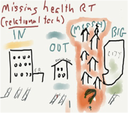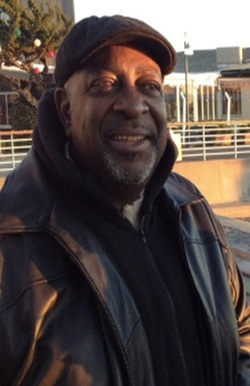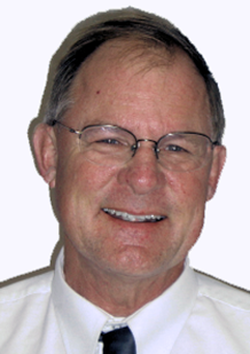
Words matter. Indeed, words are a kind of matter, with weight, velocity and power, especially when humans are talking with other humans about their journeys through life. This became vivid in two days with Stakeholder Health partners in DC followed by two in Minneapolis with Larry and Connie Pray. All four days were about life and its fears and possibilities emerging in the fields of relationships from which come all that matters.
 We nurture the life of communities we love knowing they rest on ground in motion.
We nurture the life of communities we love knowing they rest on ground in motion. The Stakeholder Health meetings were held in the halls of power of the Hubert Humphrey Health and Human Services Building as people in the government met with those from health systems who shared the basic goal of advancing mercy and justice using the powers of large health systems and and community partners. We had gathered as one of the next steps toward helping each other implement the logic and findings of the Stakeholder Health collaborative learning document (www.stakeholderhealth.org/pdf/).
 Fred Smith both embodies and elucidates the concept of the Beloved Community.
Fred Smith both embodies and elucidates the concept of the Beloved Community. That widely circulated document laid out some basic framework for moving toward complex human communities in large scale partnerships.
Health systems have dropped roughly three bazzillion trillion dollars on technology in recent years, but we still find a big gap in technology that fits the Stakeholder Health model of transformation. The whole drive of Stakeholder is to move toward, not away from, human complexity, so we don’t want control techniques or technologies; we want “relational” technologies. It seems like there should be tools to help that happen without us hospital people turning into programmers. Surely some kid in Bangalore could figure this out. We’re stumped.
We aren’t the only ones thinking about community health these days. No idea is currently more powerful or less helpful than the framework of “Collective Impact” promoted widely by the Stanford Social Innovation Review
(http://www.ssireview.org/articles/entry/collective_impact).
The idea is that a community needs a backbone organization that can bring common metrics and analytics so that everyone behaves in a more socially effective manner. Originally designed to help foundations move toward more collaborative local funding, the idea is now being applied to all sorts of community scale schemes and poppi ang up in all sorts of grant proposals. Not surprisingly, everyone wants to be a backbone.
The first rule of medicine is “do no harm.” At community scale it is dangerous to impact something one has not carefully considered. No community is improved by dumbing down humans into collectives that can be impacted, especially by a backbone swung in haste.
Two questions:
Is the “backbone” the right body part? Don’t we need a heart or mind more?
Is “impact” the right verb? Aren’t real places more like gardens? Would any gardener, farmer or forester speak of impacting their garden, farm or beloved woodlands?
Metaphors are most dangerous when they encourage us to take the self-serving, sell-reinforcing nature of power lightly. Collective impact emphasizes the role of the backbone organizations which plays into the way local elites LOVE rigid central spine organizations. The same people (often the exact same people) end up populating them replicating over and over again the social dynamics that tend to settle for minor improvement schemes when true transformation is both necessary and possible.
This is not a matter of poetic correctness, but programmatic effectiveness. We are foolish, not just impolitic, to think we think we can impact communities into the complex sustained generative processes that produce vital, emergent life?
Natural processes rest on humility, wisdom and, yes, love. So Stakeholder Health often speaks of the Beloved Community as the guiding image for our work, honoring not just Dr. King but sharing with him the sense of wonder for the life that God makes possible even in the most difficult and troubled places. This kind of vision calls out practical human models such as the idea of “limited domain collaboration” which assumes partial knowledge and murky grounds for working together, but begins with a hope for what is possible when grown-ups try to lend their best to nurturing the life of the whole. Accurate language for complex human systems is necessary for meaningful success. So don’t try to “impact” my neighborhood; nurture it. You’ll get a lot further faster.
 Larry Pray, author of Threshholds and co-author of Leading Causes of Life. “We are all born fluent in
Larry Pray, author of Threshholds and co-author of Leading Causes of Life. “We are all born fluent in Larry, still capable of profundity more important than short term recall, noted that you don’t really need to read the words to know what matters in church. You don’t even need to remember the names of those who love you, since the most important thing was not their separate labels but common relationship. “We’re all one body anyway.”
Larry says we can speak the language of life without all the footnotes. “We are born fluent in life. It is not just enough. It is plenty.”
We find our life as we move through connections and meanings and possibilities and hopes as we generate all that might uplift and nurture Gracia and all she will come to call beloved.
We would not speak of impacting her.
We hope for far more.
Larry says we can speak the language of life without all the footnotes. “We are born fluent in life. It is not just enough. It is plenty.”
We find our life as we move through connections and meanings and possibilities and hopes as we generate all that might uplift and nurture Gracia and all she will come to call beloved.
We would not speak of impacting her.
We hope for far more.
 RSS Feed
RSS Feed
